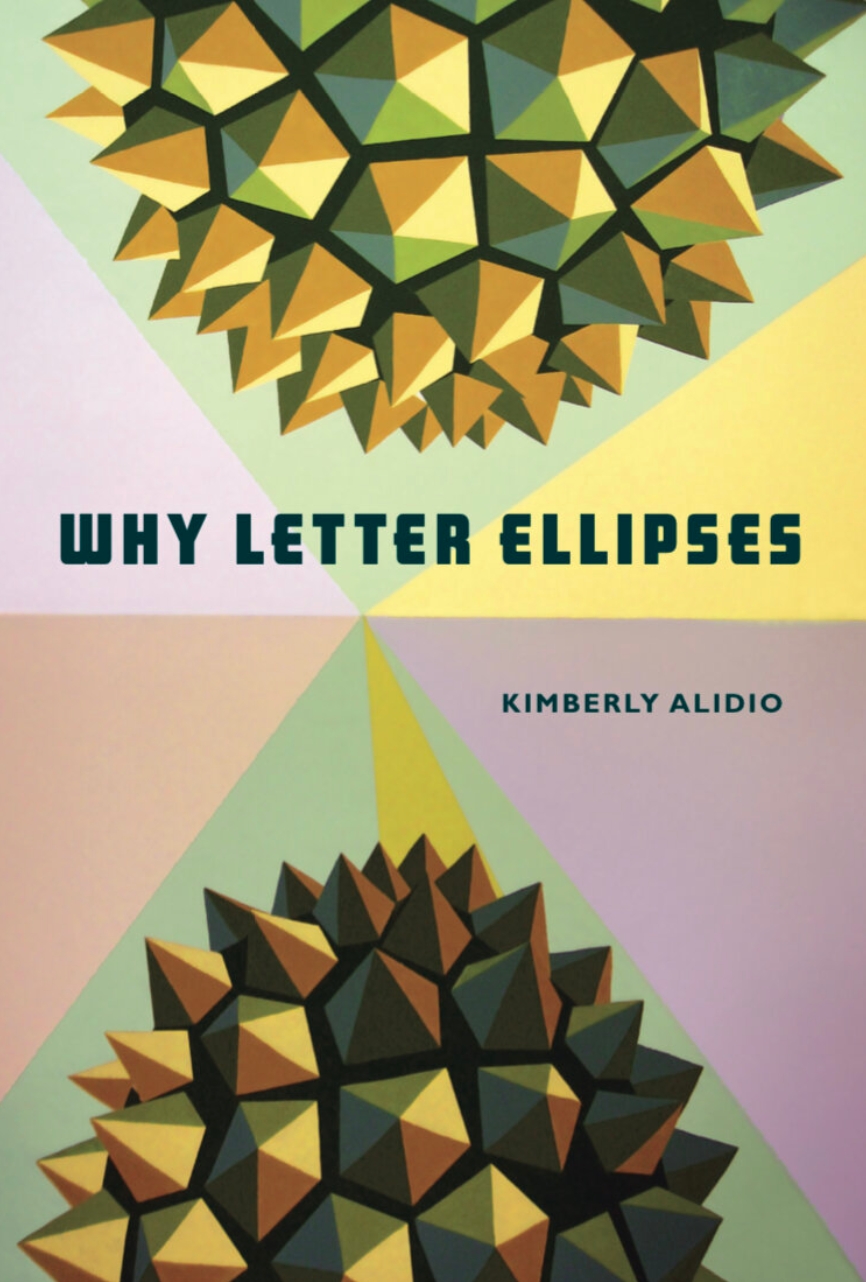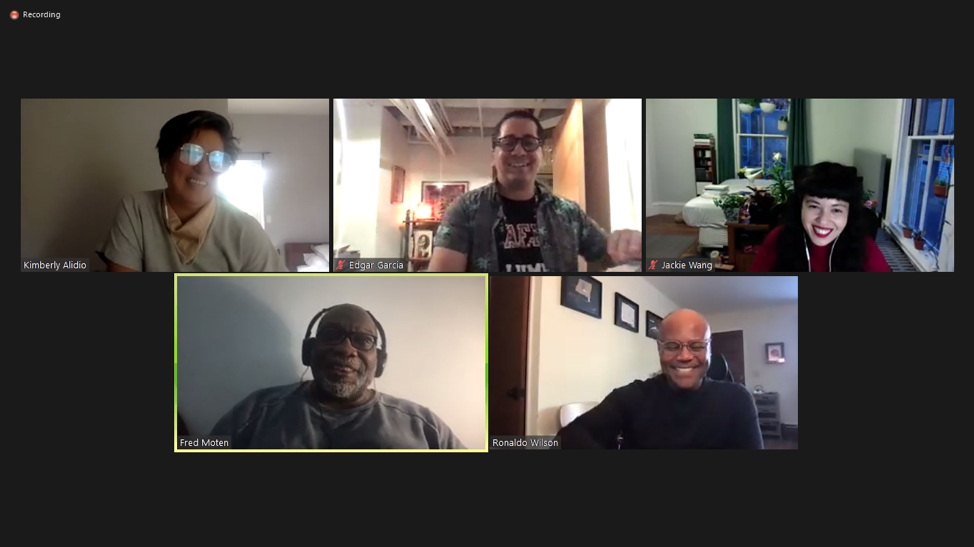On Wednesday, April 14, 2021, the department of Performance Studies welcomed poet Kimberly Alidio to mark the release of her book why letter ellipses. In a conversation moderated by Professor Fred Moten, fellow poets and scholars Edgar Garcia, Jackie Wang, and Ronaldo V. Wilson came together to discuss their favorite sections of the book.
Kimberly Alidio is a poet and the author of :once teeth bones coral:, a cell of falls, and After projects the resound. Her forthcoming project, Ambient Mom, is an interdisciplinary work of translingual poetry, concrete poetry, essay, digital archive, and sound poetry recordings. Alidio was Assistant Professor of History and Asian American Studies at the University of Texas, Zora Neale Hurston Scholar at Naropa University’s Jack Kerouac School, and Asian American Studies Postdoctoral Fellow at the University of Illinois. She holds a PhD in History from the University of Michigan, and, in May 2021, will receive a MFA in Creative Writing from the University of Arizona. At present, she lives between Tucson, AZ and Catskill, NY.
why letter ellipses is Alidio’s third book of poetry. Alidio is a historian and her archival skills are apparent in her work. why letter ellipses takes from archival sources and creates verse. Weaving unofficial letters from an officer’s wife and social work notes from 1930s America for one of her poems is the kind of work that can be read throughout the book. History and poetry meld to create a new, revealing archive that blurs the boundaries between the living and the dead. It truly is a form of non-fiction writing blended with verse, allowing for a form of understanding history as it is placed into different formations.
The discussion about why letter ellipses kicked off with comments by poet and scholar Edgar Garcia. When getting a new book, Garcia likes to sit with the title to think about the ideas it is supposed to evoke. For why letter ellipses, Garcia knew the book had something to do with language in the literary sense, but he found that the book is mostly asking, “Why?” The title doesn’t have a question mark — it is both the question and the answer. In life there are so many frustrating questions and so many easy answers. Society’s problems are all on the surface — there are no secrets to it. For Garcia, why letter ellipses’s book title contains all of these ideas.
Jackie Wang starts off by reminiscing on how she met Alidio, through an invitation to contribute to an edition of Everyday Genius. Wang uses this chance to take us back into the archive and engage with it. She calls attention to the coda as a way to talk about the feelings of ambivalence related to the archive, especially in connection with Ailidio’s ambivalence about inscription. Wang speaks about the document as an inscription on the body, and also from a root word docere, or to teach. Wang teaches us what the document does, and how we can attend to our own relationship with the written word.
For poet, mixed media artist, dancer and performer Ronaldo Wilson, why letter ellipses serves as intervention and investigation. It is as much a book of poetry, as it is a book of criticism. Wilson loves how the book locates and unfurls desire. Professor Moten fixates on a line that says “lesson conflict”. It is not enough to simply lessen conflict, but it is necessary to learn a lesson from the conflict. Moten adds that “her scores invite recitation with its sentimental minerals”, in gratitude for hearing the words shared by all of the guests today.
Thank you to all of our panelists for a wonderful night full of poetry! We want to give a special thanks to Kimberly Alidio for celebrating the publication of why letter ellipses with us.
Story by Aarlene Vielot and Shivani Joshi

